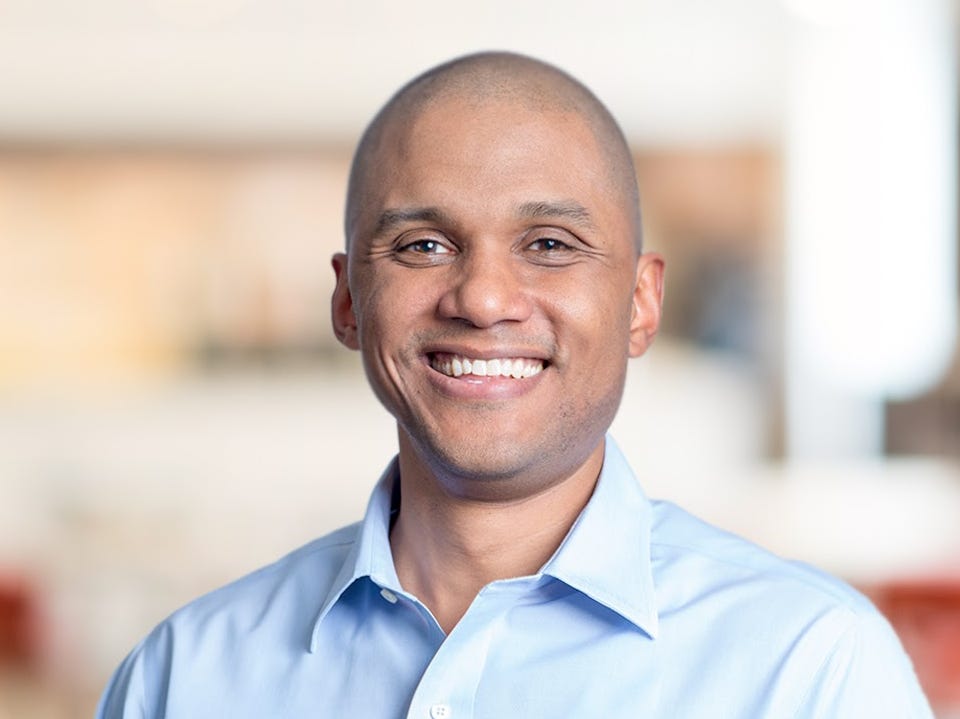
Keith Bevans
- Keith Bevans is the head of global consultant recruitment at Bain & Company.
- He spoke with Insider about how job-hunting has changed for recent graduates during the pandemic.
- Job-seekers should be open-minded and flexible rather than hyper-focused on any one company or position.
- See more stories on Insider's business page.
The global impact of the the pandemic has left many college students and recent graduates uncertain about their professional futures.
Keith Bevans, partner at Bain & Company and leader of their global consultant recruitment efforts, understands the uncertainty many of these individuals are facing.
Bevans enrolled in Harvard Business School in the summer of 2000 during the "high-flying dotcom days" and graduated in 2002, one year after the dotcom bubble burst.
"What I saw at the time were a lot of students starting their journey toward the next degree with a clear vision for a specific job they wanted right after they got their diplomas," Bevans told Insider.
These students had acute aspirations in mind and were hyper-focused on specific companies, departments, roles, and markets that they believed would create a direct path to their goals.
Instead, many were confronted with the realization that their desired companies were no longer hiring and that certain positions ceased to exist.
"For a lot of goal-oriented people it was tremendously unsettling. They were in part seven of their 21-part career plan and the wheels had come off."
At the height of the pandemic, the US unemployment rate was elevated to levels not seen since the Great Depression. Tens of millions of students around the world were also at-risk of dropping out of college.
Such a substantial loss of career development opportunities has left countless professionals of all ages with uncertain futures. Here, Bevans shares tips for job seekers looking to kick their job-searching into high gear.
1. Don't be afraid to go the nontraditional route
Bevans is quick to mention that his peers who overcame the dotcom bubble burst developed their skills in a nonlinear path in order to achieve their long-term vision.
"The most important thing you can do to prepare for your five-to-10 year career track is to understand the experiences that you need to collect to be successful. Find a job and employer that can provide as many of those experiences as possible."
Those who were able to remain on their journey without losing their equilibrium were those who creatively sought out nontraditional routes to gain beneficial experiences, Bevans says.
Along with Bain & Company, global firms like Boston Consulting Group have adopted new hiring and intern programs in response to the pandemic. Internships and externships at PricewaterhouseCoopers, McKinsey & Company and other major firms, whether in-office or virtual, are also valuable resume-enhancers that often lead to full-time employment.
Bevans also encourages job seekers to work with nonprofit organizations that they're passionate about; in his own spare time, he runs a tutoring program at his church and volunteers with organizations like Junior Achievement.
2. Stay resilient and keep engaging
Job hunting is a stressful endeavor for many professionals. Unfortunately, many applicants will receive more rejection notices than offer letters. In fact, when Bevans was first offered his role at the company, the partner hiring him had been rejected three times before he finally secured employment at Bain & Company.
Bevans encourages applicants to keep an open mind, engage in virtual recruitment activities, and continue pursuing the experiences that they desire, even if that doesn't lead to a position with their dream company immediately.
To those who feel like COVID-19 has irreparably disrupted their career goals, Bevans is optimistic that the next generation of professionals and executives will rise above this challenge, just as his classmates did in the early 2000s.
"At the end of the day, there are tremendous opportunities out there and I think that the people who weathered the storm best were those who had a five-to-10-year career vision and understood the skills and experiences they needed to achieve that vision."